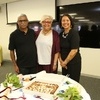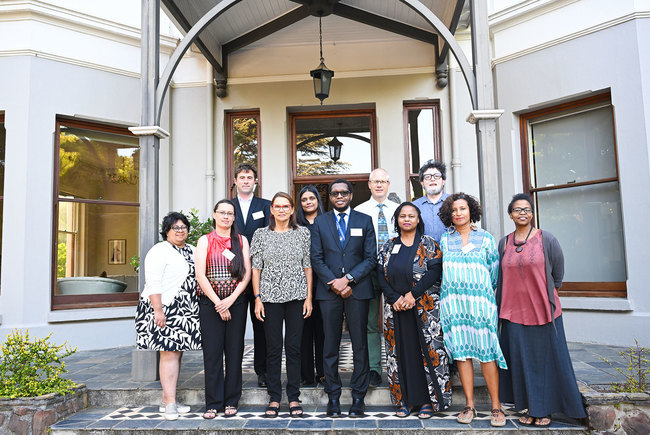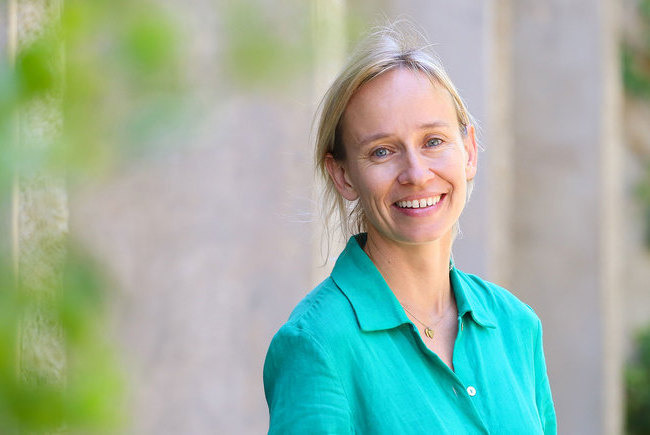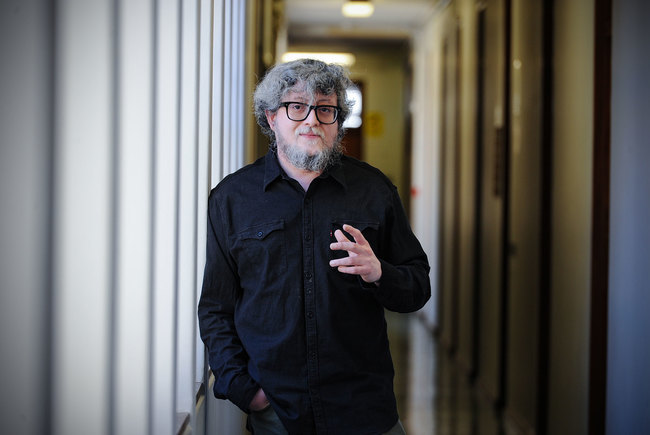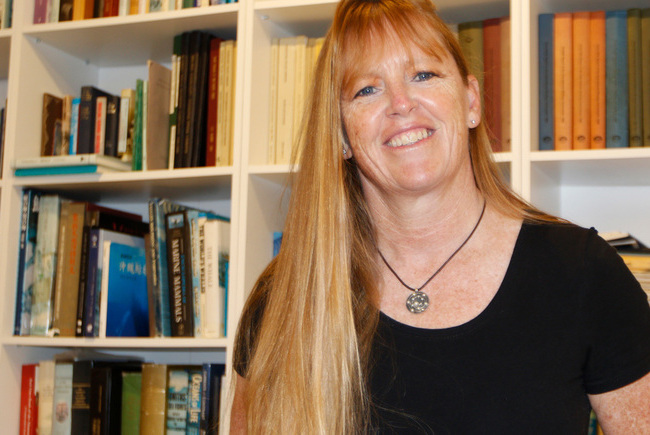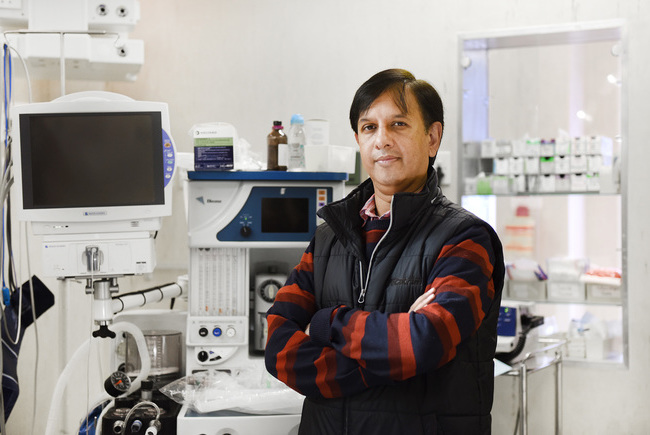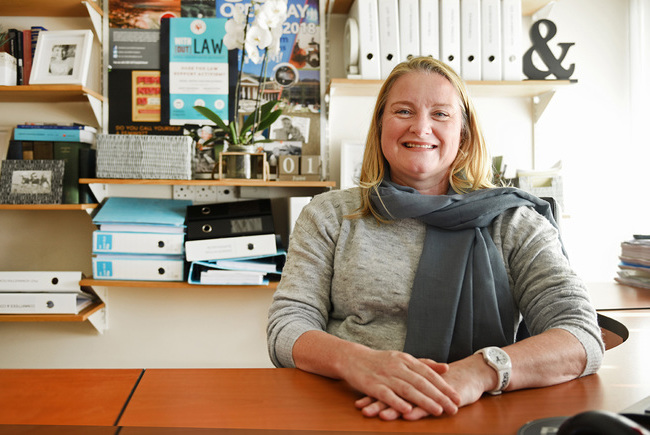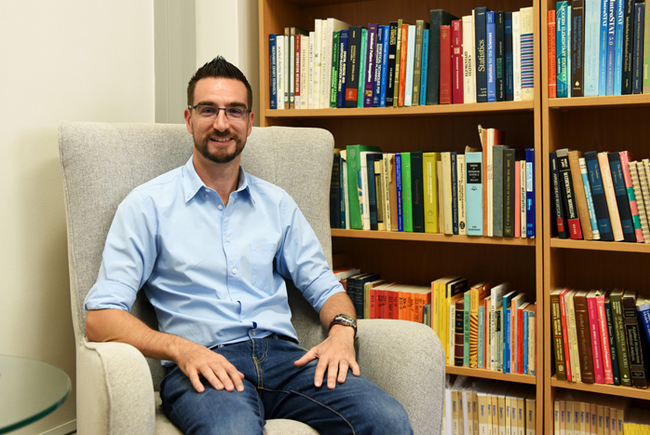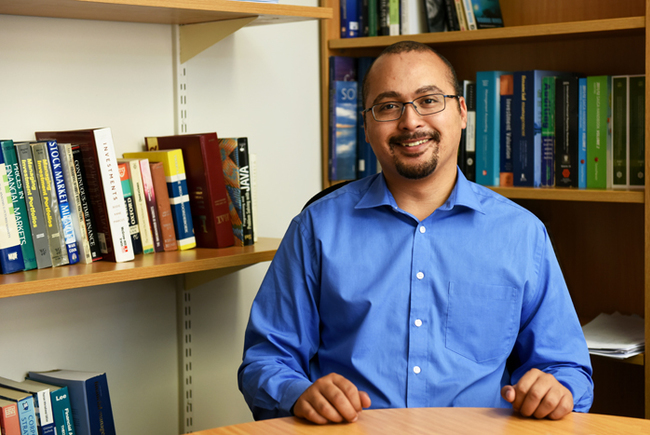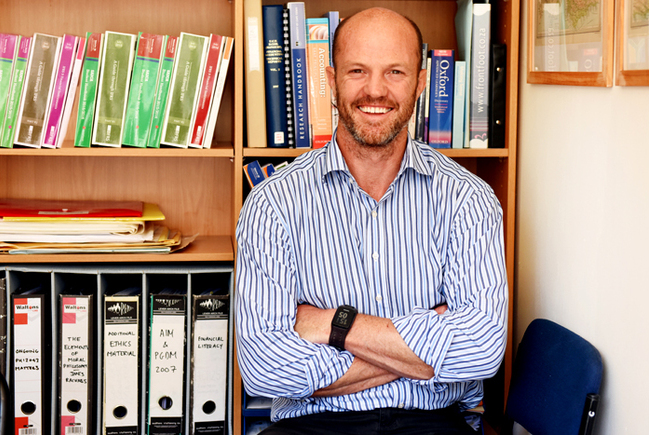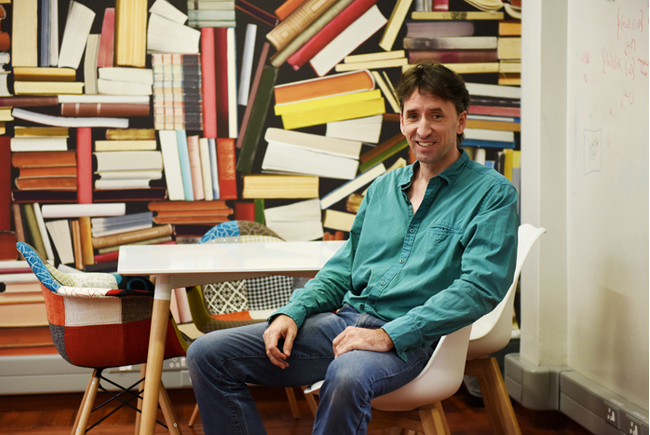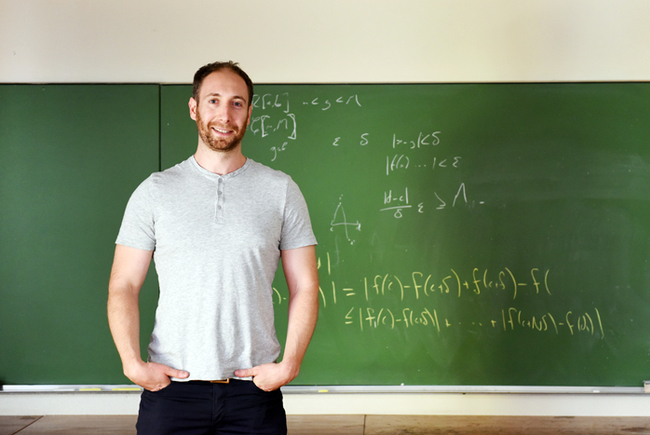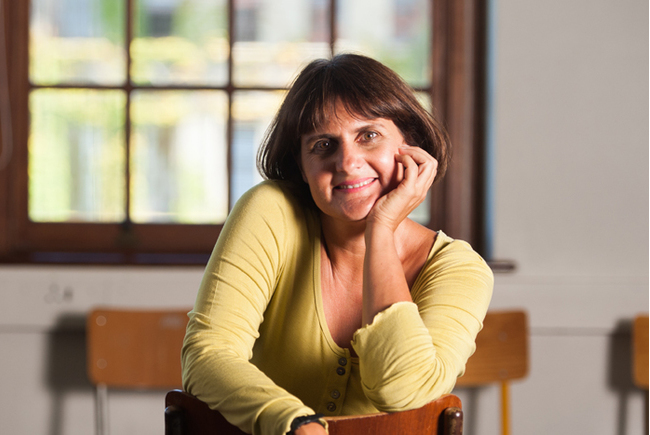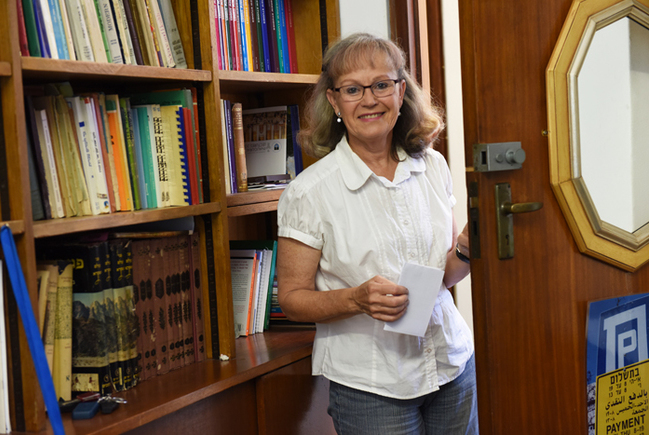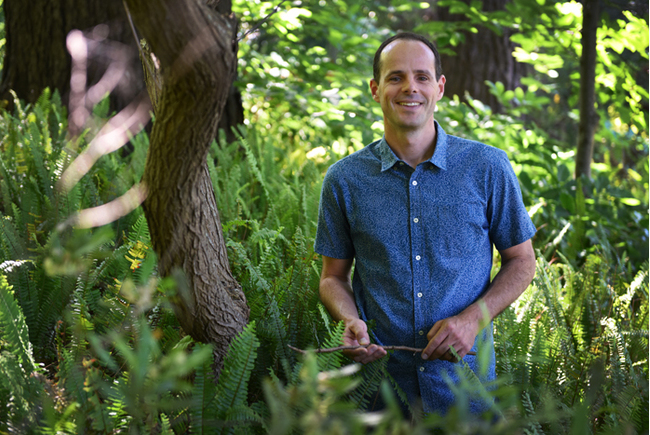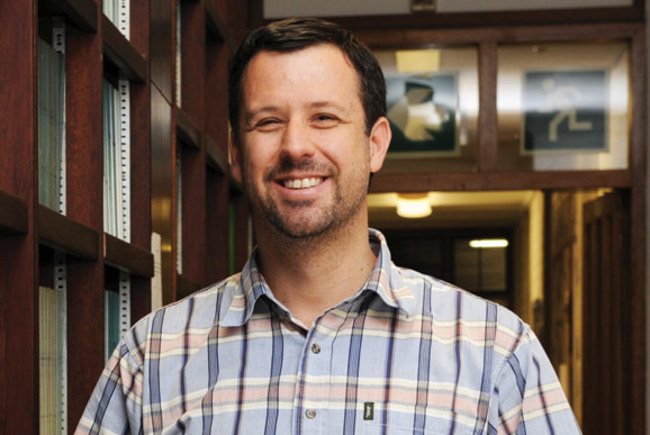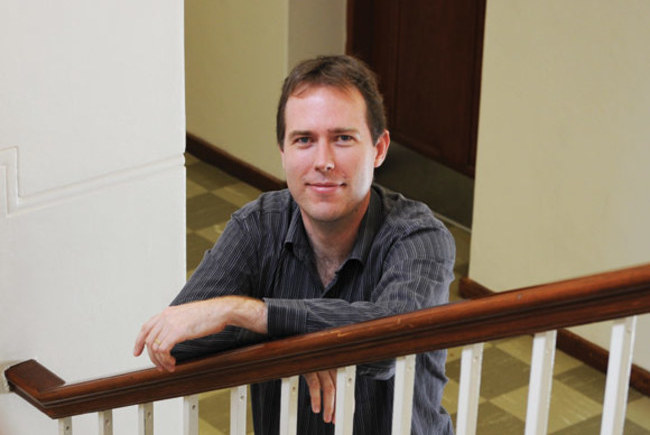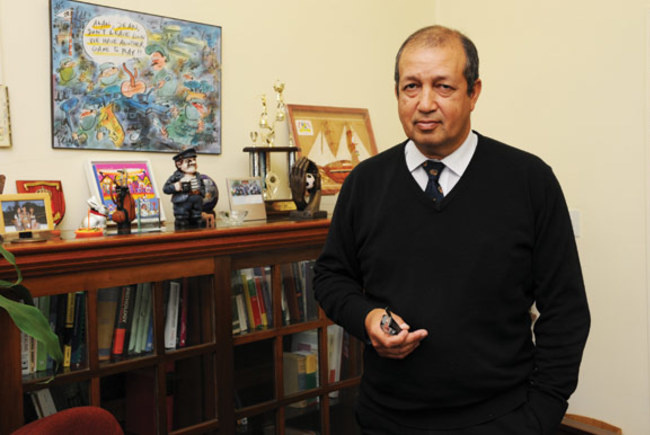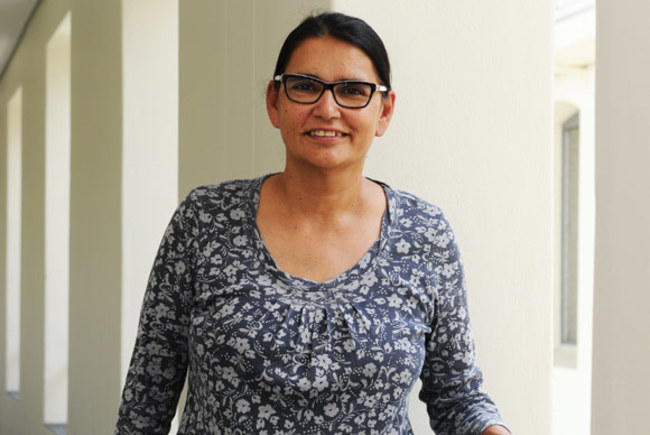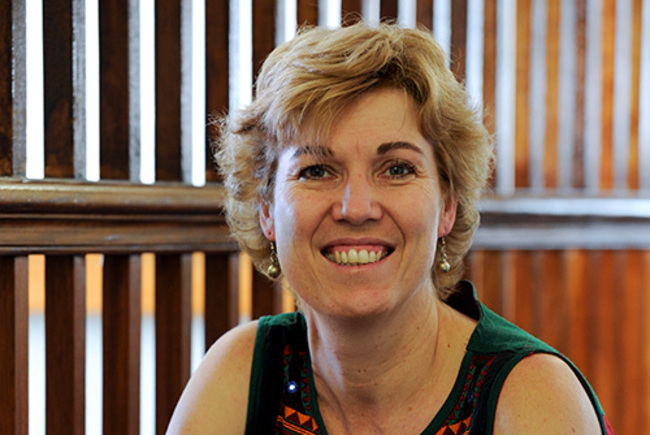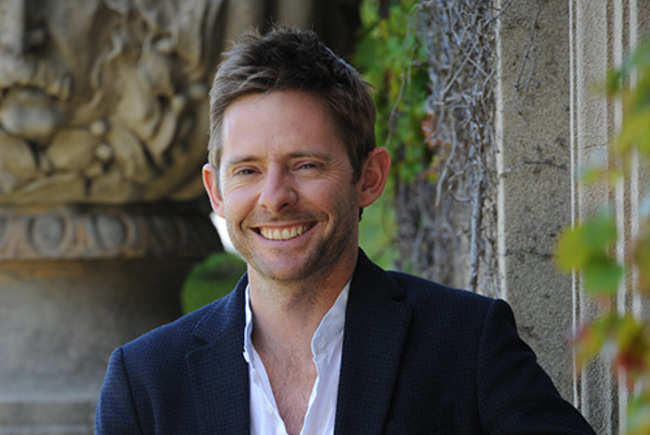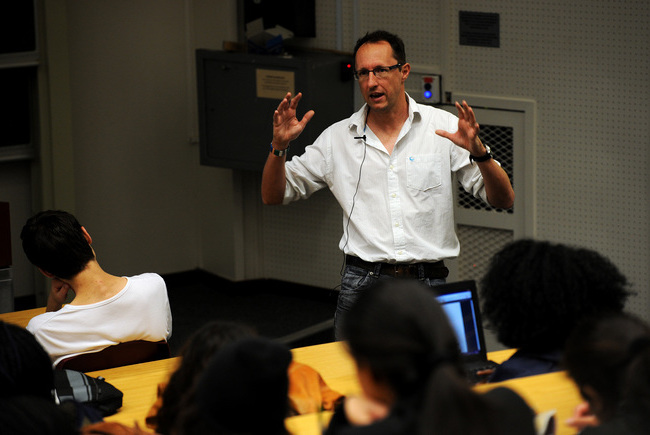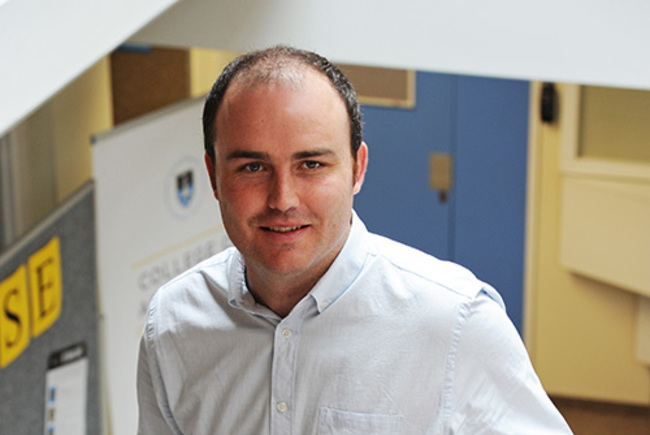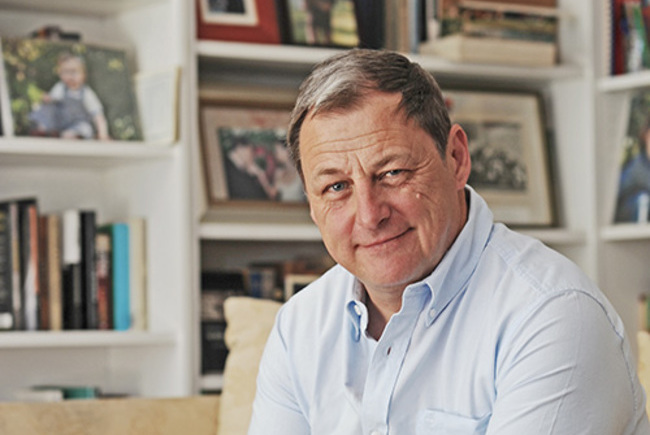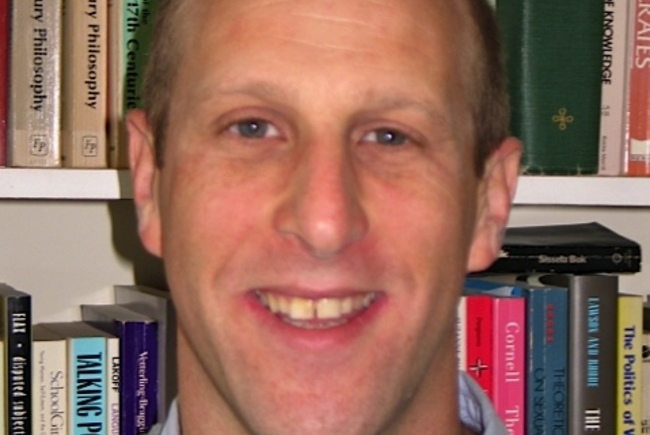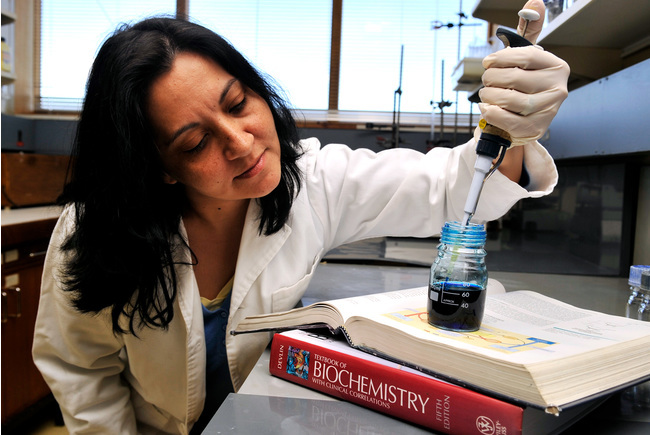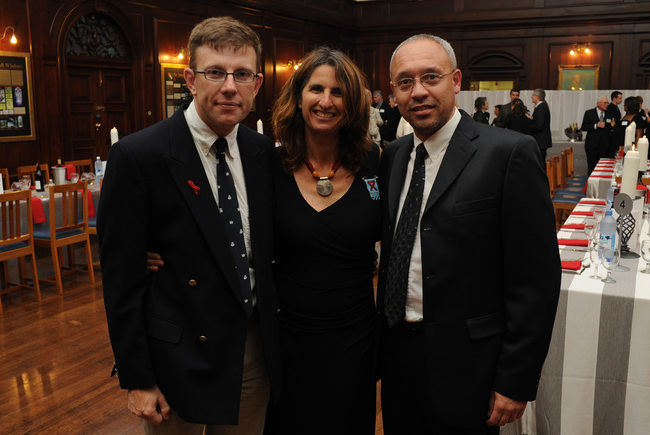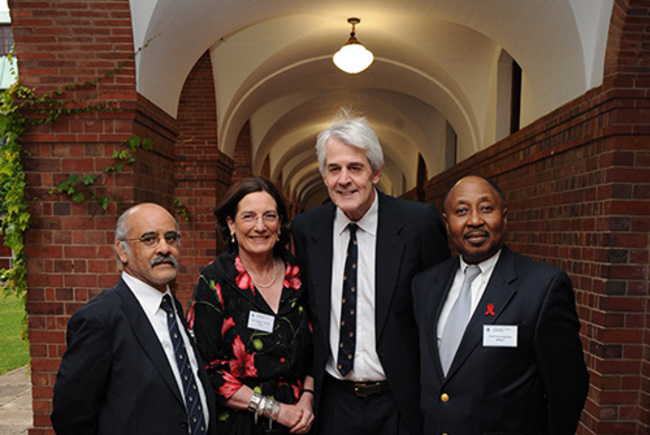'A good teacher? Someone who teaches to learn'
30 November 2015 | Curated Yusuf Omar. Photo Michael Hammond.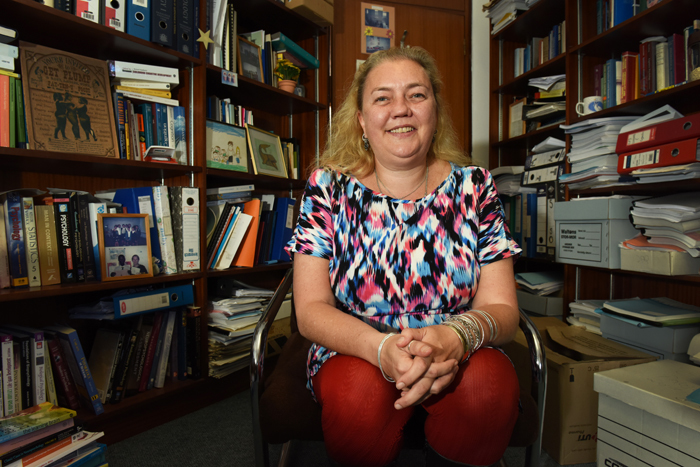
Winner of a Distinguished Teacher Award, Dr Joanne Hardman of the School of Education, gives us a peek into her classroom and talks about her teaching style, what makes a good teacher and her five top tips for teachers.
Q: What do you teach and how did you become a teacher?
A: I teach developmental psychology to pre-service and in-service teachers. I also teach learning theories to master's students and a group of PGDip students who are studying towards an MEd ICTs degree.
When I was a master's student at the University of Natal, Durban, I was chosen by my supervisor to head up the group of tutors who taught first-year psychology. There were over 1000 students in that class. I was given a group of students who were having a particularly hard time passing, because my supervisor reckoned I was a good teacher. This was something of a joke to me and my friends who, as psychology master's students, were not trained teachers at all.
I had a wonderful time teaching these students and found that, well, I wasn't that bad at it. All throughout my studies I had held small tutorial groups for people in my class who were struggling with the work, so this was really just an extension of that.
Q: What enthuses you about being in front of a class or group, or helping an individual?
A: I love the dialogue that opens up. I love to learn from my students. In my PGDip ICTs class I have lecturers from all over Africa and from many different disciplines. I learn so much from them. I also love to see the look on a student's face in individual supervision when they finally "see" what it is they have been struggling with.
Q: How would you describe your style?
A: I believe very much in structured guidance, or what Vygotsky calls 'mediation'. I feel strongly that there is no student who cannot achieve well in the academy, given the right tools. Too often we academics forget that we have a lot of tacit knowledge about, say, writing essays, that we don't externalise.
I like to be very explicit with my students and I like to guide them towards their full potential. I rely heavily on student feedback and change my lectures according to the levels of engagement I experience. I don't use the terms teacher and learner centred because I think they are rhetorically hollow; but I would describe my style as engaging students and teaching to their needs.
Q: What do you think makes a good teacher?
A: Someone who teaches to learn? A good teacher is knowledgeable in his or her subject; listens to students' input and provides detailed feedback to students. Yes, someone who teaches to learn is a good teacher.
Q: How do you adapt to diverse classes in terms of language, culture, nationality, and so on?
A: Most of my classes are multicultural and I have a lot of experience teaching refugees operating in their fourth or even fifth language. I try to ensure that my content is relevant to students' actual lived experience by drawing on real examples from my research, which is cross cultural. I make time for students who are struggling in terms of language. We meet twice a week to discuss the work done in lectures. I also hold writing tutorials once every two weeks for students who are struggling to access academic text and to produce academic texts.
Q: Does technology play a big role for you?
A: I used to be a bit of a technophobe, which my students find quite funny as I am very keen on technology now. This is especially true in my masters and PGDip courses where I encourage students to interact online during presentations. So we have real-time input and questions that can be addressed. I find this is very useful, especially for students who might not be willing to actually talk in the class. They seem to have little problem finding their voice in a chat room. Of course for me technology is merely a tool; using technology effectively requires good pedagogic practices.
Q: And how does your research shape your teaching?
A: I lecture learning theories and child development and all my research is located in these fields, so I would have to say that my teaching is directly shaped by my research. There wouldn't be one without the other.
Q: Who was your best teacher, whether at school, university or elsewhere, and what made you remember them?
A: I have two candidates here: The first is Prof Jill Bradbury (Wits) who was my master's supervisor in psychology. In my honours year I held down two jobs and couldn't afford to enroll for my master's. Jill used her NRF funding to pay my fees. She is also one of the most dedicated teachers I have ever met. I doubt very much that I would be in academia had she not been my teacher.
The second teacher I learnt a lot from is Professor Paula Ensor, my doctoral advisor. She challenged me cognitively on every level! Without her input I would not be the supervisor I am today. I would go so far as to say that I learnt how to supervise from being supervised by her.
Q: What are your five top tips for teachers?
A:
- Be flexible – you must change your lectures to meet your students' unique developmental challenges.
- Be enthusiastic – if you don't like what you are teaching, your students won't either.
- Be an active researcher – your teaching will be stagnant if you cannot grow it with your research.
- Know your field.
- Put your students' needs first. You might want to cover the curriculum quickly but it is more important that you develop your students cognitively than cover your curriculum.
 This work is licensed under a Creative Commons Attribution-NoDerivatives 4.0 International License.
This work is licensed under a Creative Commons Attribution-NoDerivatives 4.0 International License.
Please view the republishing articles page for more information.
Distinguished Teacher Award
The Distinguished Teacher Award is the highest accolade awarded to teaching staff at all levels within the university. Through the award, the University of Cape Town acknowledges the primary place of teaching and learning in the university’s work.
2023
2022
2021
2020
2019
2018
2017
2016
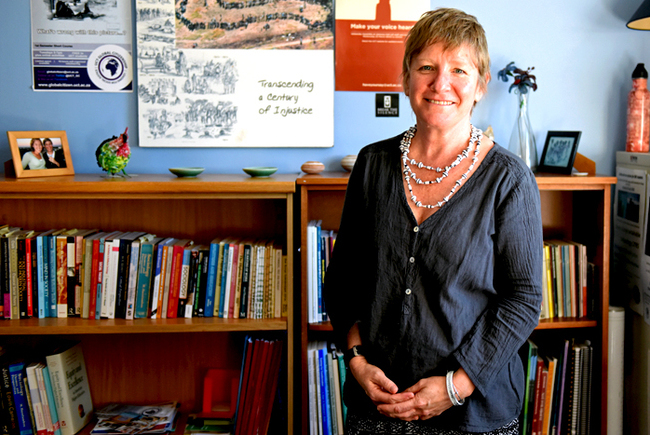
Distinguished Teacher Awardee Dr Janice McMillan's work is not discipline-specific; rather it's about transformative teaching and how we engage the wider world beyond the university. This community-based learning encourages students to think about themselves simultaneously as students, emerging professionals and active citizens.
30 Mar 2017



